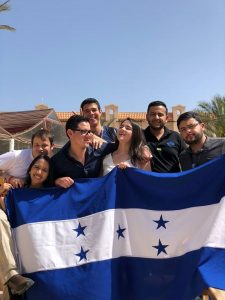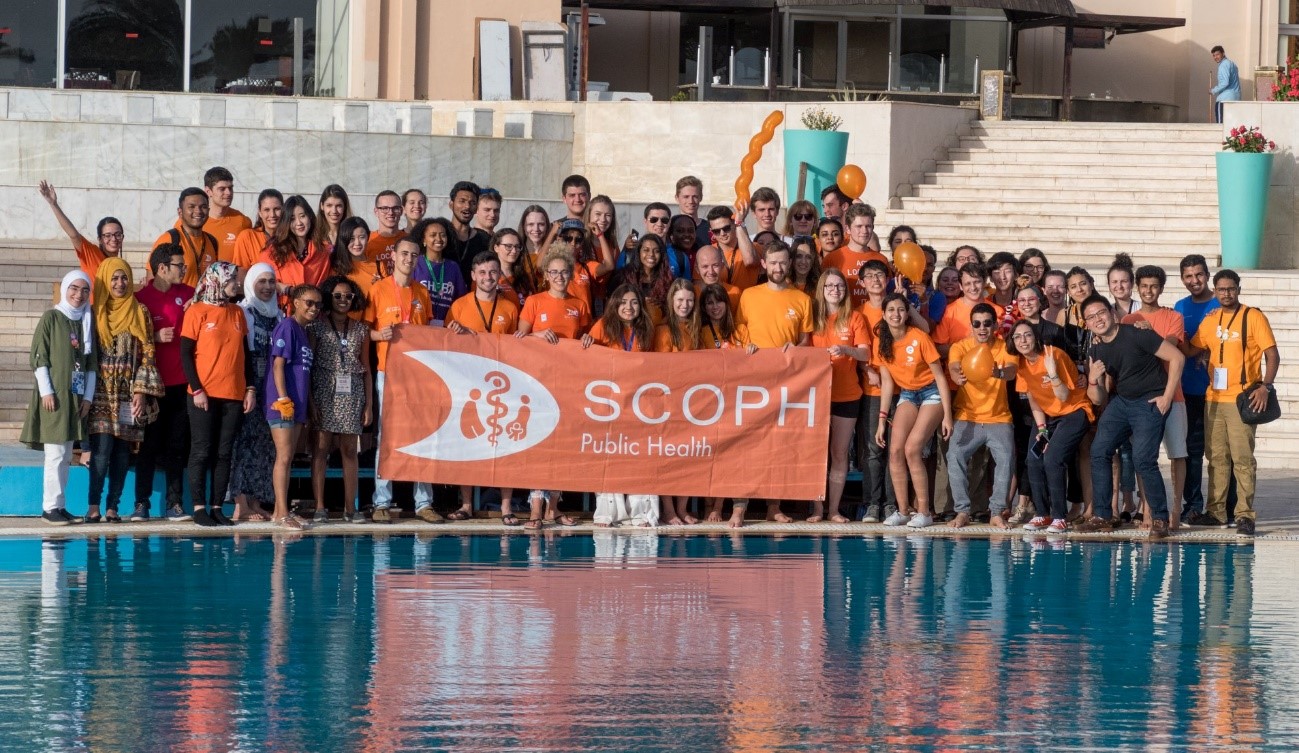IFMSA: Think Globally, Act Locally by Augusto Barón
My name is Augusto Barón, I’m 25 years old, and currently a medical student from Honduras. Last year, I became part of a society that would change my life: The International Federation of Medical Students’ Associations (IFMSA).

IFMSA is currently the biggest and the oldest association of medical students worldwide, and Honduras managed to become a first-time member last year. Quite new, quite uncertain, and unexplored by all of us, I ventured inside of it. I started by locally managing my university’s committee on public health matters, which forms part of a subdivision of IFMSA: the Standing Committee of Public Health (SCOPH). As providence would have it, I soon found myself taking over the national management of SCOPH. I was now in charge of guiding all of SCOPH’s members across my country in their work to ameliorate Hondurans’ health issues as best we could. Proudly, we kept growing and building our strength and structure with the passing of time, all throughout 2017.
Then, two events came to merge together in my life: being part of the Global UGRAD Program, and having to represent SCOPH IFMSA-Honduras in our international gathering at Egypt. My time in West Virginia University has allowed me to appreciate how exciting all these new perspectives on a variety of topics are, and how diversity can be celebrated in terms of cultures and traditions. It blessed me with a small international family that has shown me a little bit of who they are, where they come from, and educated me on their points of view. And to an extent as well, the Global UGRAD experience has been a very welcome opportunity to improve my English (which is far from perfect). All that I had learned so far in my time in the U.S. would play a mayor role for what was waiting for me during our March Meeting in Egypt.
It is one thing to hear that IFMSA is “global” and a completely different one to experience it. While in Egypt I was introduced to this massive gathering of worldwide medical students, every single of them present there in an attempt to collaborate, learn, and share knowledge and skills. In addition, we were deciding on the future of our society and taking stances on the world’s health issues. While the work was important, I was mesmerized by the density of different cultures in this one place. About 81 different countries were represented in this particular assembly, so you could see garments, greeting protocols, phenotypes, and hear all sorts of languages. It was a very striking scenery, combined with rich and varied perspectives on health issues and how to tackle them as health ambassadors. I even got to meet two medical students who were representing the United States as well!
My Global UGRAD experience helped me to accommodate myself to some of the cultures I interacted with, and even to make use of my basic Arabic language skills that Ahmad, one of my fellow WVU Global UGRADs, so kindly taught me. It was fascinating to see how both of these amazing opportunities were merging into one goal: global cooperation, mutual understanding, and cultural empowerment. My English skills were also particularly useful since English was both the keystone to mutual understanding within the seas of linguistic diversity and is also IFMSA’s official language. I got to represent my country along with the rest of my Honduran delegation, learn about the intricacies of global public health interactions, learn how to improve my work in my own country within the society’s framework, teach a small bit about research and its importance in our public health work, showcase our country’s work (we tied with IFMSA-China in our SCOPH activities fair both taking the second & third place!), and principally expand my beloved international family, becoming inspired by them to keep on working for my people and the world.
Finally, the most meaningful teaching that IFMSA has left me so far is found in their slogan: “Think Globally, Act Locally”. This is a philosophy that we can all embrace. Regardless if you are a medical student or not, it invites to cultivate your perspective on what the world has to offer, and what the state of the world is across varied topics. The Global UGRAD program has done its fair share in ameliorating this global understanding. In addition, it promotes within yourself a sense of identity and empowerment to take action within your local context. Whatever your field of studies or work is, you can make a difference: with your skills and your motivation, you can help humanity take a step towards a better future; by being an honorable professional, by being a good citizen, by taking direct action within your communities, by raising your voice to defend what’s fair, and helping improve what you can. For we are the future relay to come, let us be a good one, for our people and the world.
Written by Augusto Barón (Honduras), a current Global UGRAD student at West Virginia University.
